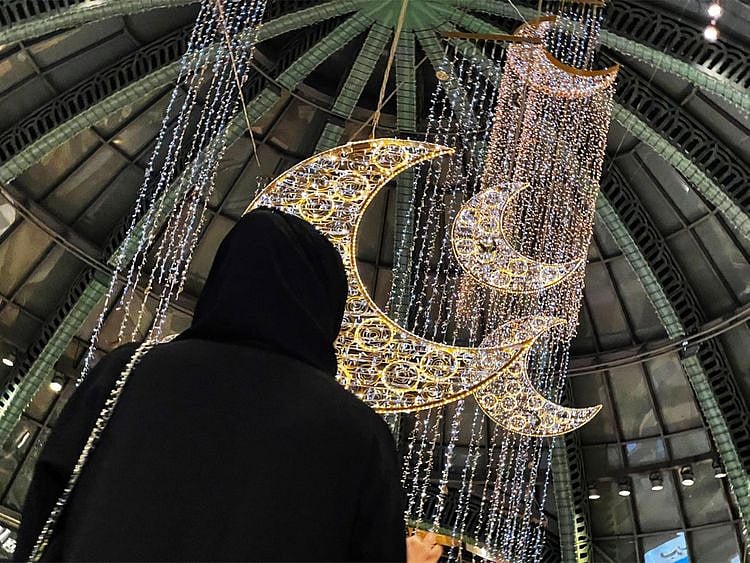Ramadan 2023: The first day of Ramadan and everything else you need to know
With just a few days left for Ramadan, here’s everything you must know

Dubai: Ramadan is considered the most special month of the year for Muslims, given that it is the month in which the Quran was revealed to Prophet Mohammad (PBUH) on the night of Laylat Al Qadr, one of the last ten nights of Ramadan.
Throughout the month Muslims fast from dawn to dusk, but the observance is not just about abstaining from food. Ramadan is considered a time for self-discipline, introspection, sacrifice, and empathy for those less fortunate. The annual observance of Ramadan is considered one of the 'Five Pillars of Islam'.
How are the dates confirmed?
The first day of Ramadan is traditionally marked by the sighting of the crescent moon with the naked eye, and is the ninth month of the Islamic calendar.
A moon-sighting committee in Makkah, Saudi Arabia, will make the first official announcement. Makkah is considered the holiest city in Islam. It was the birthplace of Prophet Mohammad (PBUH), and also the location where Prophet Mohammad (PBUH) had his first revelation of the Quran. This is why Islamic countries, including the UAE, follow Saudi Arabia's call for their official announcements.
Ramadan lasts for one complete moon cycle, which is usually 29 or 30 days. The moon sighting determines the duration. Nowadays, it is possible to predict the dates and duration based on astronomical calculations.
The first day of Ramadan
Based on calculations, Ibrahim Al Jarwan, Chairman of the Board of Directors of the Emirates Astronomy Society, a member of the Arab Union for Astronomy and Space Sciences (AUASS), predicted earlier this year that Ramadan is set to begin on March 23 (Thursday) and will last for 29 days.
If predictions are confirmed by authorities, and Ramadan starts on March 23, Muslims will fast from 4.52am (Imsak) to 6.35pm (Maghrib) on the first day, for 13 hours and 43 minutes.
As summer progresses and days get longer, the daily fast duration will also get longer – coming up to 14 hours and 26 minutes towards the end of Ramadan. (This is based on prayer timings in Dubai, other emirates may have small differences in sunrise and sunset times.)
How do Muslims begin and end their fast?
Each morning before sunrise, those who intend to fast have a meal called 'suhour' before Imsak. Afterwards, they start with the Fajr prayers and continue fasting throughout the day.
The fast ends for Maghrib prayers after ‘Azaan’ (call for prayers) which is at sunset. Traditionally the fast is ended with dates and water, followed by ‘iftar’ which is usually a family or community affair.
How do you greet each other?
Greet people by saying “Ramadan Kareem”. This roughly translates into “Happy Ramadan”. Or you can take the greetings online by using the hashtag #RamadanKareem
Fasting and prayers: What happens during Ramadan?
Adult Muslims are required to fast from dawn to dusk every day throughout Ramadan. Those who are ill, elderly, diabetic, pregnant, menstruating, or breastfeeding are not required to fast. Those who are travelling or feel unwell on certain days during Ramadan may fast on different days at a later point. Children are not required to fast unless they have reached puberty, although many still choose to join the fast.
In addition to abstaining from eating, drinking, and smoking, Muslims also refrain from sexual relations as well as sinful speech and behaviour.
Taraweeh prayers
During the month, fasting Muslims will head to mosques in the UAE for 'Taraweeh' prayers – one of the specialities during Ramadan. For the entire month, Muslims will line up at night to observe a number of optional rakats (iterations of supplications and prayers), and listen to and reflect on the recitation of the Quran.
Taraweeh is derived from the Arabic word which means ‘to rest and relax’, as it is seen as a special form of Islamic meditation. The prayers involve reading long chapters of the Quran every night, with the aim to complete the entire Quran by the end of the last day of Ramadan.
The Taraweeh prayers take place after Isha prayers around mid-evening. Qiyam Lail (additional night prayers) will take place after midnight and before Fajr prayers.
Working hours
During Ramadan all employees across UAE, irrespective of whether they fast or not, get a shorter workday by two hours with no change in pay.
This year, public sector employees are allowed to work remotely for 70 per cent of the day on all Fridays during Ramadan.
Do kids have to go to school?
Yes, but the school timings will be shorter. Private schools in Dubai have the flexibility to decide when to start and end the school day.
This time around, many students will be at home for a couple of weeks during Ramadan because of spring break (March 25 to April 9). University students in public colleges will be allowed to do remote learning on all Fridays during Ramadan, in addition to the shorter hours.
Ramadan etiquette
While fasting is not required for all, it is important that all residents follow essential etiquette out of respect for those who observe the daily fast. Here are some dos and don’ts:
Network Links
GN StoreDownload our app
© Al Nisr Publishing LLC 2025. All rights reserved.